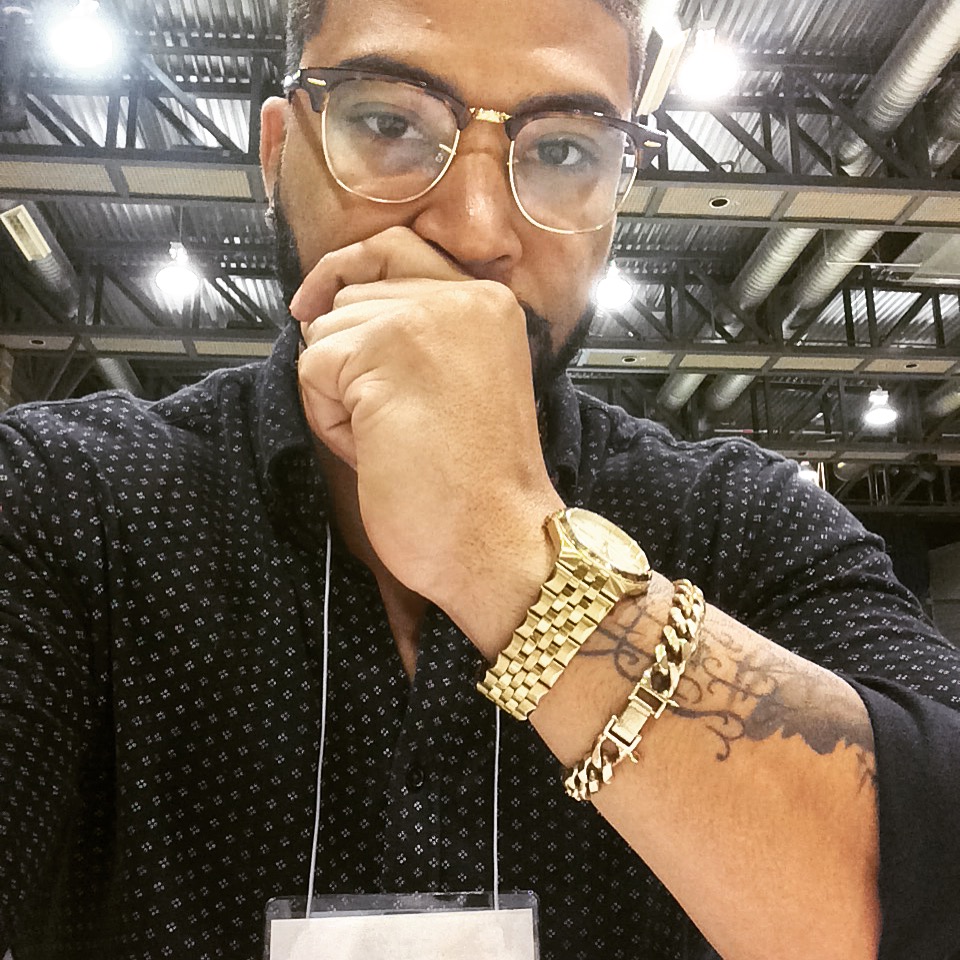Despite experiencing a somewhat stifling time at the Congress of the Humanities and Social Sciences, I was afforded the tremendous opportunity to present in a panel discussion on some of my graduate work. Below is a condensed transcription of my presentation, largely regarding shattering Black male stereotypes.
I want to start off by sharing a story. Picture me walking into a 300 level university course. I would walk in late on a routine basis; pants sagging, headphones still in blasting music just loud enough to cause a minor distraction, hat on, staring directly into the teacher’s eyes. It was as if I was daring my professor to address my demeanor. But something happened that day, in fact, it had been happening for a while now. In fact, it had been happening ever since I stepped into university.
You see, my ‘performance’ was merely a repetition of my tried and tested high school routine; a routine that I would use to illicit some type of attention from the authority in the classroom. And at that time, in the space of schooling, any type of attention was better than no attention, or validation, at all. So naturally, the attitudes I embodied and negotiated usually came from a place that would garner me negative attention. However, this no longer occurred in university. Thus, began my journey into exploring how urban Black males experience schooling practices with an explicit interest on how that experience is different in the high school setting compared to the university one.
Growing up in a so-called ‘at-risk’ community, I was heavily invested in hip-hop culture. I would even venture to say that I learned more from Nas and TLC than I did from my textbooks. The issue I experienced, like many other urban Black males, was that the hip-hop cultural aesthetics and vernacular I learned from and ultimately appreciated were the furthest thing from being valued in the traditional school space. As a result, the space of school and the space of my community grew to the point where they became two mutually exclusive environments. Subsequently, my identity was also in constant negotiation.
Fortunately, Black masculinity has also survived in the space of negotiation. In today’s terms, that negotiation translates to an ability to be adaptable. This ability to become adaptable through identity politics converges on an understanding of how aesthetics, vernacular, and space all either resist or reciprocate Power. Ultimately, an examination of how urban Black males, especially ones espoused by a hip-hop culture, work with these interrelated networks can be used to comprehend how urban Black males experience school while simultaneously pinpointing why schooling pushed some intelligent urban Black youth out of education while retaining certain others.
To close, one needs to look no further than the 90’s hit TV show, The Fresh Prince of Bel-Air. Two of the main characters, Will Smith and Carlton Banks, represent the essentialist discourse around Black masculinity. On one hand you have Will, the nonchalant, easy-going, suave, Black male who tries to “slide through” school by maintaining a quasi hyper-masculinity. On the other hand, there’s Carlton Banks, the young, intelligent, “square” Black male who places success above all else. Some may even say that Carlton represents that Black male who has been “white washed”. But maintaining and perpetuating these sole tropes of Black masculinity is troubling. It speaks to the problem of discourse pertaining to urban Black males that either pathologizes them or attacks hegemony. If this is the only dichotomy that exists, Black males will continue to find themselves in a lose-lose situation.
This speaks to the need to challenge our current understandings of Black masculinity and how school operates as a cleanser of sorts; always trying to sanction the attitudes, behaviors, and skill-sets of particular bodies. I have no problem with the ideal of a ‘universal student’, but whose model of ‘universality’ are we following? And who has to make the biggest alterations to their being when we decide upon this? Both school and student must work to challenge the common stereotypes that are placed on Black males by providing opportunities for them to be seen for their complexity as people. I can be both Will Smith and Carlton Banks and that does not sacrifice any type of ‘authenticity’ I am aiming to achieve. Our students can wear Jordans and sag their jeans and even come to class late, but that doesn’t take away from the fact that they understand the importance of education. Our Black males are not lazy, underachievers, or at-risk. It is the box placed upon them that demarcates them as such and subsequently makes them feel like that. When we analyze the complexity in which urban Black males experience school settings and discuss the ways that some have become successful at doing so without placing polarizing tropes of identity on them, maybe then we can say, “we’ve made it”.
[share title=”Share this Post” facebook=”true” twitter=”true” google_plus=”true”]

